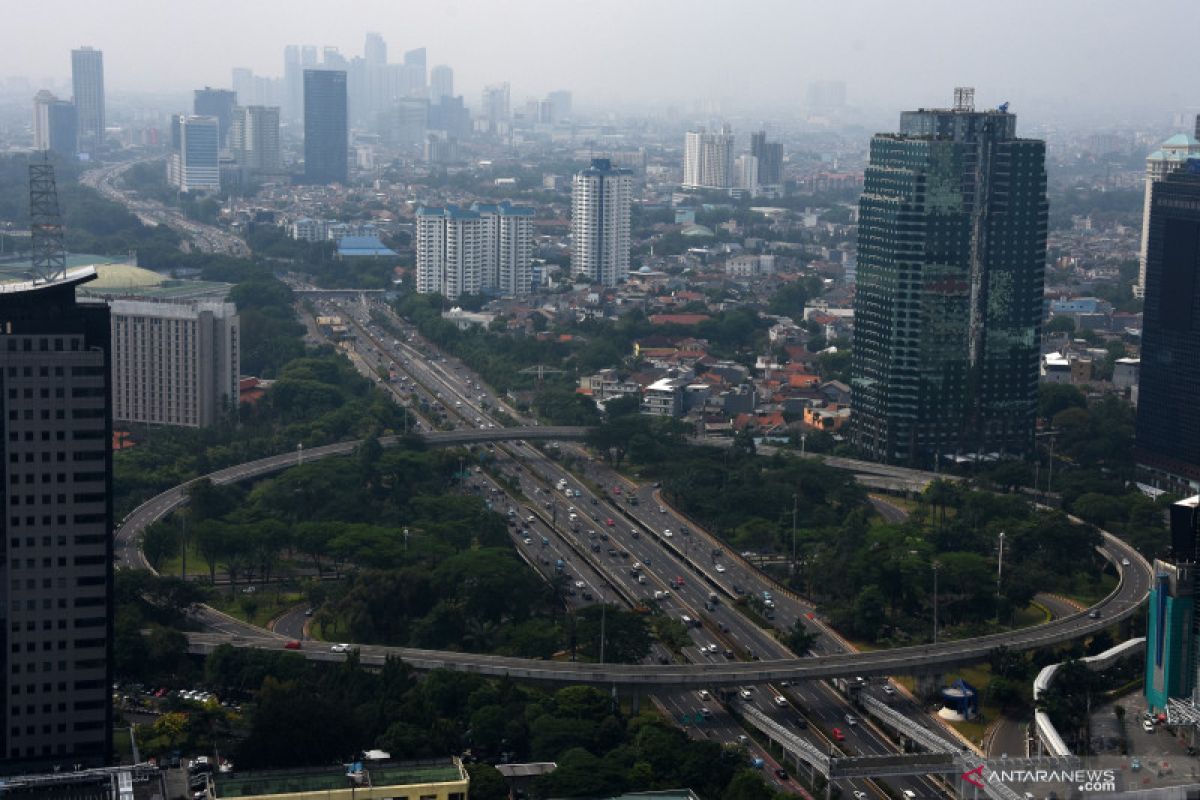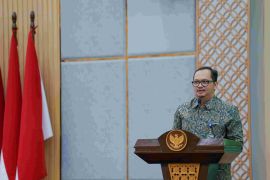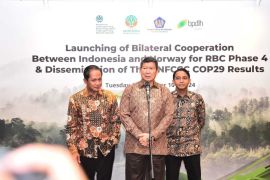Global support will accelerate the achievement of emission reduction targetsJakarta (ANTARA) - Indonesia is in need of international funding support to realize commitments, both for emission reduction targets and net zero emission/NZE (carbon neutrality) by 2060 according to the results of COP-26 Glasgow.
"Global support will accelerate the achievement of emission reduction targets," Director General of New Renewable Energy and Energy Conservation of the Ministry of Energy and Mineral Resources (ESDM) Dadan Kusdiana noted in a statement here, Saturday.
Kusdiana noted that the government had implemented several policies to reduce emissions to net zero.
He explained that the first step was to develop renewable energy on a massive scale, with scattered, varied, and large amounts of sources. According to records of the Ministry of Energy and Mineral Resources, Indonesia's renewable energy potential reaches 3,700 Gigawatts (GW).
According to Kusdiana, the next policy aims to reduce the use of fossil energy gradually and encourage the use of electrification for both motorized vehicles and household appliances as well as the application of more efficient and environmentally friendly technologies.
Related news: Carbon tax imposition put off till July 2022: minister
The government has expressed a commitment that the country will meet all electricity requirements from renewable energy by 2060, Kusdiana stated.
Based on the Energy and Mineral Resources Ministry's calculations, operations of coal-fired power plants (PLTU) will end in 2056 and new and renewable energy generating capacity of 587 GW is targeted in 2060.
To achieve this target, large investment is required, reaching around US$1,042 billion, until 2060, so a global role is required to support emission reduction in Indonesia.
Kusdiana explained that in a bid to reduce greenhouse gas emissions, the government issued Law Number 7 of 2021 on the Harmonization of Tax Regulations. The law will apply a carbon tax to coal-fired power plants, starting July 1, 2022, with a cap tax mechanism, and a carbon tax will be imposed on coal-fired power plants that exceed the set emission threshold.
According to Kusdiana, if the carbon tax has been implemented, then the revenue from carbon tax is expected to help in boosting development funds, investing in environmentally friendly technologies, or providing support to low-income communities in the form of social programs.
Related news: Stakeholders should achieve ProKlim target of 20 thousand locations
"This carbon tax policy is a comprehensive policy package for emission reductions and as a stimulus for the transition to a green or sustainable economy," he explained.
Senior Associate, Lead Energy Taxation, International Institute for Sustainable Development (IISD), Tara Laan, stated that the implementation of carbon tax would give a signal to investors about the government's climate policy commitments.
In addition, Laan remarked that the implementation of a carbon tax will encourage companies to switch to cleaner energy technologies. For finance companies, the imposition of a carbon tax on fossil energy use will make lending in this sector riskier and less profitable in future.
He explained that various "subsidy" distribution schemes were in place to ensure affordable energy prices, especially for vulnerable or poor economic groups, for instance, through cash transfers or income tax reductions. The income from the carbon tax can also be used to invest in clean energy infrastructure.
Related news: Indonesia, Panama cooperate on water conservation
Related news: Indonesia seeks cooperation on climate change with Saudi Arabia
Translator: M Razi, Azis Kurmala
Editor: Fardah Assegaf
Copyright © ANTARA 2022












